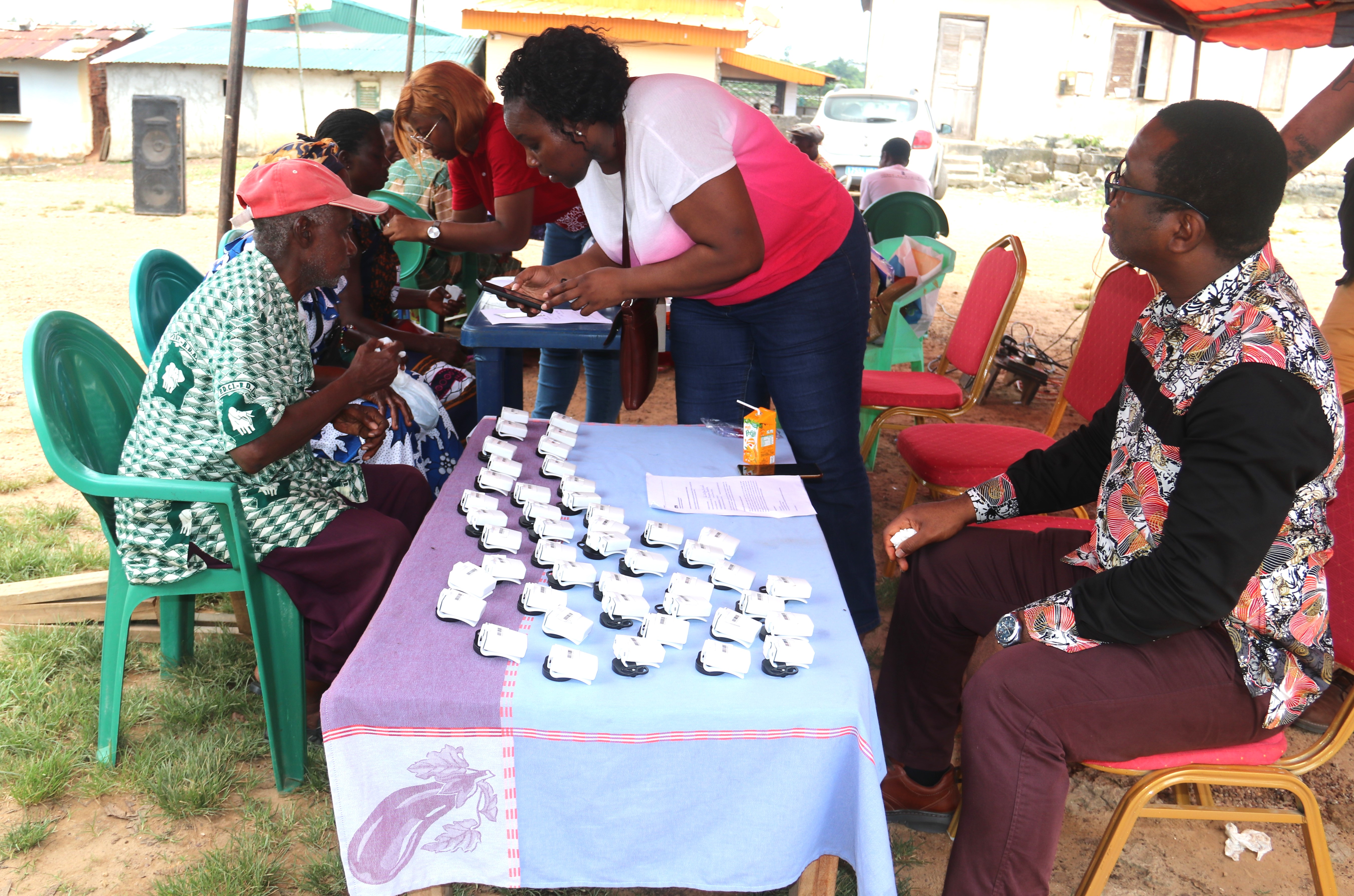News
AIP/Agboville: a digital tracing tool for contact cases of respiratory diseases evaluated in Yapo-Kpa

Raising awareness and fitting the tracking device to participants
Agboville, 07 nov 2023 (AIP) - A study to assess the feasibility, effectiveness and data quality of implementing the Botnar Wearable Sensor (BWS) device, a digital tracking tool for contact cases of respiratory diseases, is underway in the village of Yapo-Kpa (Agboville department) from Monday 6 to Tuesday 7 November 2023.
During the study, 100 volunteer members of households in the village of Yapo Kpa will wear the sensor all day long, and the specialists will check whether the parameters measured by the device, namely distance and time, are accurate while preserving the privacy of each user.
"The project we're running here is an innovation that was born at the time of Covid-19 in the form of a telephone application. But given the interest in developing digital solutions to promote the detection of contact cases, we were asked by the Botnar Foundation to carry out research to ensure that this technology could also be used in countries with other and more dangerous pandemics", explained project leader Muswagha Katya.
According to Ms Muswagha, this project was created in 2021 to understand the African pandemic context in particular, and how this new technology can be useful to health authorities to better control pandemics and other diseases.
It is a project of the EssentialTech innovation center at the Ecole Polytechnique Fédérale de Lausanne (EPFL), co-developed with the Centre Suisse de Recherches Scientifiques (CSRS). It began in Switzerland and is funded by the Botnar Foundation. Two African countries have been selected for this pilot phase of the project: Kenya and Côte d'Ivoire.
As a digital tool for tracing contact cases, the BWS is secure, anonymous and accurate. The tool has the potential to be adapted to a wide range of applications in the context of epidemic and pandemic preparedness, including the management of acute respiratory infections and the fight against antimicrobial resistance.
(AIP)
ena/fmo